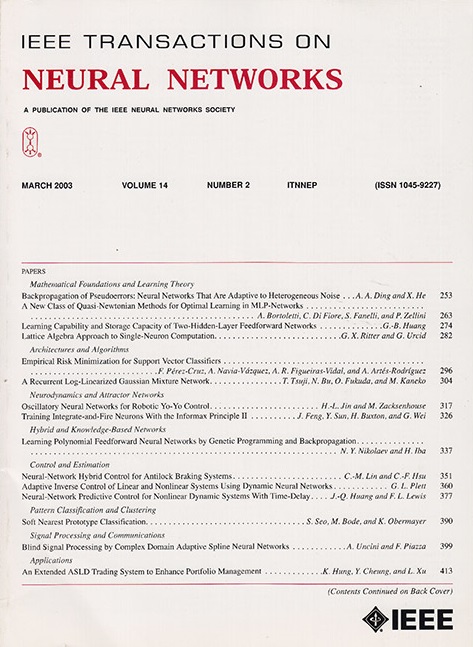开放世界目标检测中未知目标的无监督识别
IF 10.2
1区 计算机科学
Q1 COMPUTER SCIENCE, ARTIFICIAL INTELLIGENCE
IEEE transactions on neural networks and learning systems
Pub Date : 2025-04-28
DOI:10.1109/TNNLS.2025.3559940
引用次数: 0
摘要
开放世界对象检测(OWOD)将对象检测问题扩展到现实和动态的场景,其中检测模型需要能够检测已知和未知对象,并逐步学习新引入的知识。目前的OWOD模型检测的是与已知物体具有相似特征的未知物体,但它们存在严重的标签偏差问题,即它们倾向于检测与已知物体不相似的所有区域(包括未知物体区域)作为背景的一部分。为了消除标签偏差,本文提出了一种新的模块,即基于重构误差的威布尔模型(REW),该模型通过威布尔建模,基于物体出现频率的先验知识,学习一种无监督判别模型,用于识别真实的未知物体。生成的模型可以通过我们的方法的另一个模块进一步改进,称为rew增强的对象定位网络(ROLNet),它迭代地将伪未知对象扩展到未标记的区域。实验结果表明:1)在MS COCO数据集上,我们的方法在检测未知目标方面明显优于现有的SOTA方法,同时在检测已知目标类别方面保持了相当的性能;2)在LVIS和Objects365数据集上取得了更好的泛化能力。代码可从https://github.com/frh23333/mepu-owod获得本文章由计算机程序翻译,如有差异,请以英文原文为准。
Unsupervised Recognition of Unknown Objects for Open-World Object Detection
Open-world object detection (OWOD) extends object detection problem to a realistic and dynamic scenario, where a detection model is required to be capable of detecting both known and unknown objects and incrementally learning newly introduced knowledge. Current OWOD models detect the unknowns that exhibit similar features to the known objects, but they suffer from a severe label bias problem, i.e., they tend to detect all regions (including unknown object regions) that are dissimilar to the known objects as part of the background. To eliminate the label bias, this article proposes a novel module, namely reconstruction error-based Weibull (REW) model, that learns an unsupervised discriminative model for recognizing true unknown objects based on prior knowledge of object occurrence frequency via Weibull modeling. The resulting model can be further refined by another module of our method, called REW-enhanced object localization network (ROLNet), which iteratively extends pseudo-unknown objects to the unlabeled regions. Experimental results show that our method 1) significantly outperforms the prior SOTA in detecting unknown objects while maintaining competitive performance of detecting known object classes on the MS COCO dataset and 2) achieves better generalization ability on the LVIS and Objects365 datasets. Code is available at https://github.com/frh23333/mepu-owod
求助全文
通过发布文献求助,成功后即可免费获取论文全文。
去求助
来源期刊

IEEE transactions on neural networks and learning systems
COMPUTER SCIENCE, ARTIFICIAL INTELLIGENCE-COMPUTER SCIENCE, HARDWARE & ARCHITECTURE
CiteScore
23.80
自引率
9.60%
发文量
2102
审稿时长
3-8 weeks
期刊介绍:
The focus of IEEE Transactions on Neural Networks and Learning Systems is to present scholarly articles discussing the theory, design, and applications of neural networks as well as other learning systems. The journal primarily highlights technical and scientific research in this domain.
 求助内容:
求助内容: 应助结果提醒方式:
应助结果提醒方式:


